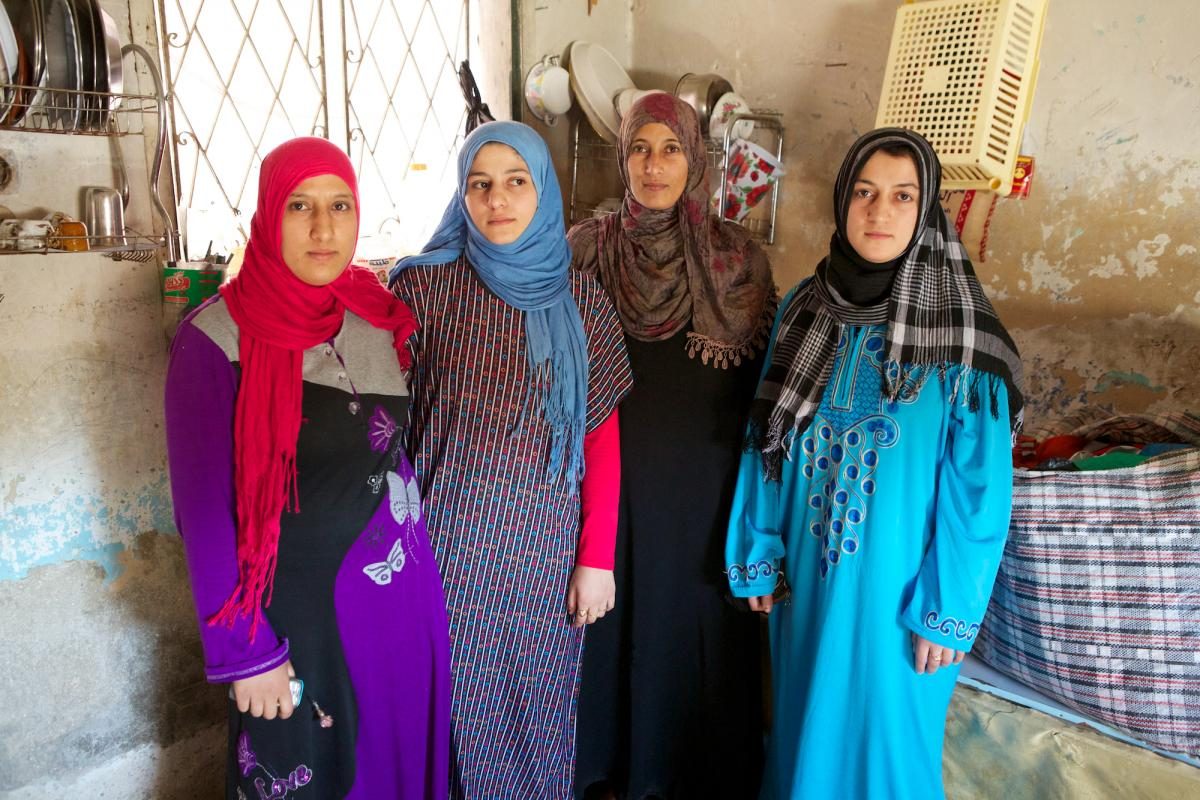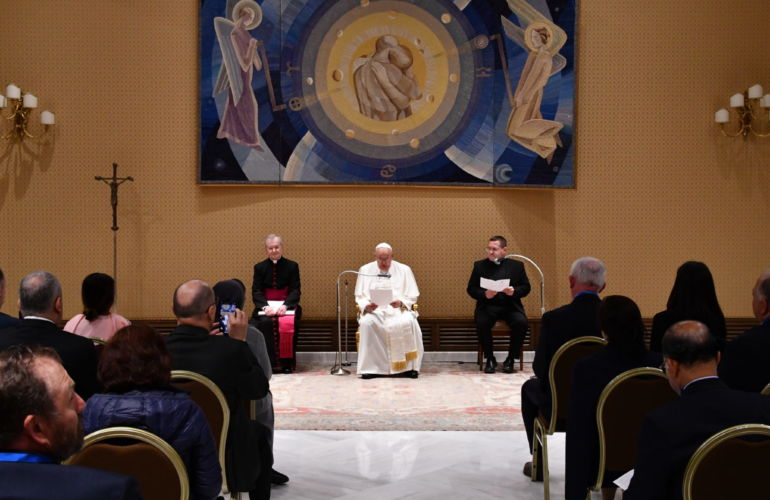EU-Funded ICMC Keeps Helping Iraqi Refugees in Syria as Aid May Dwindle

More than 2 million Iraqis fled their violent, divided homeland for fear of persecution after the 2003 Iraq war. The almost 65,000 registered Iraqi refugees in Syria now find themselves trapped in a new conflict. Those who, like Hayfa, cannot go back home, have a daunting choice between running away yet again and enduring life in war-torn Syria.
While the international community focuses its attention on relieving the humanitarian emergency triggered by the influx of more than 1 million Syrian refugees into neighbouing Jordan, Lebanon, Iraq, Turkey, Egypt and North Africa, the International Catholic Migration Commission (ICMC) has not forgotten the Iraqis who stayed behind in Syria.
When Hayfa and her family first arrived in Syria from Iraq, they settled in Shaba, southwest of Damascus. Their son Akram found a job in a shop. After years of persecution and fear in their own country, Hayfa was hopeful they could all live peacefully again.
That hope was shattered five months ago when heavy fighting broke out in Shaba between the Syrian army and the armed resistance. The family fled first to Jaramana, further south, but as soon as it settled there, an air raid set the house on fire. So, once again, Hayfa and her family had to leave everything behind.
They fled to Damascus, where they still are now – though none the safer. Almost uninterrupted, near-by explosions rock their house. When Akram – and the family’s sole breadwinner – was wounded in the back by a nearby car bomb explosion, he lost his job.
Hayfa and her family fled Iraq in 2006 when armed militias threatened to kill them because her son was working for the government. They had to seek safety in neighbouring – and then peaceful – Syria. Six years later, they found themselves packing their bags again and wondering whether they would ever be able to stop running away from war zones.
Amid the global economic crisis, governments have to prioritize recipients of the limited funds earmarked for humanitarian assistance, and Iraqi refugees – who have received donor support for many years now – may stand at the losing end of the stick. And yet, Iraqi families are among the most vulnerable in Syria, even though they no longer make the headlines of media replete with stories about Syrian refugees in neighboring countries.
“When Iraqi refugees in Syria come to us asking for assistance, they are desperate,” said the project officer running an ICMC assistance program targeting Iraqis in Syria. “Driven from their homes, as whole neighborhoods have become war zones, they have no place to go.”
Hayfa’s family, for example, deeply traumatized by the violence that has plagued for the past six years, have no income while the rent has doubled to US$ 140.
Fear is pervasive in Damascus where accounts of on-going fighting, rape and kidnapping are the small talks of the day. Hayfa and her family only leave the house to quickly buy the little food they can afford.
The ICMC project, which granted Hayfa rent payment for six months, is run with funding from the European Commission’s European Community Humanitarian Office (ECHO), which has, since its creation in 1992, provided 14 billion euros in humanitarian assistance in 140 countries around the world, targeting the most vulnerable victims of conflict and disasters.
“Without ICMC’s help we would have had to live on the streets: we would have died,” said Hayfa.
To make things worse, Hayfa’s husband has an ulcer, one of their sons has an eye disease, and Akram still suffers from the wound in his back. Fortunately, through another program funded by the United States Department of State’s Bureau of Population, Refugees and Migrants (BPRM), ICMC will give the family free access to the primary healthcare services they need.
“You gave us a safe haven, and also hope for a life in dignity and good health,” Hayfa told ICMC.
In the face of the ballooning Syrian crisis, demand for assistance is straining the capacities of ICMC and its local partner in Syria. In spite of the fighting, their staff are working hard and risking their own lives to serve many vulnerable refugees like Hayfa and her family, while even United Nations agencies have trouble reaching local communities and most journalists and international non-governmental organizations have left the country.
“We cannot abandon Iraqis to their fate – they are among the most vulnerable groups in Syria and they need our help,” said ICMC’s project officer, whose name cannot be cited for security reasons.
Thanks to funding from ECHO and BPRM, ICMC also provides rental assistance to Syrian refugees in Jordan, and through its United States-funded Resettlement Support Centre in Beirut, Lebanon, helps eligible Iraqi refugees permanently resettle in the United States.


